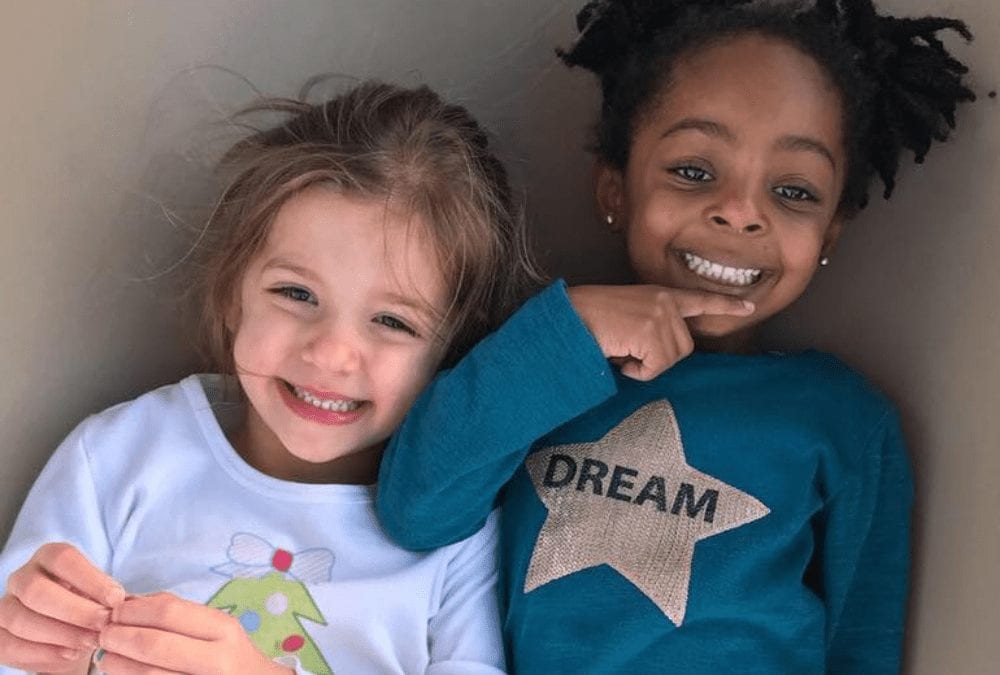Hampton Cove Preschool
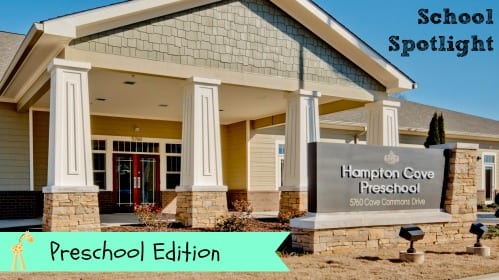
Find out more about the new Hampton Cove Preschool via our Q&A with Melissa Chatagnier Isaac, Owner & Principal of the school.
Website: www.hamptoncovepreschool.com
Facebook Page: www.facebook.com/hamptoncovepreschool
Ages of Students: 6 weeks – Pre-Kindergarten
Religious affiliation: N/A
Teacher/Student Ratio: Varies by classroom (5:1 for infants and toddlers, 7:1 for Early Preschool students, and 10:1 for Preschool 2, Preschool 3, and Pre-K)
Teacher Credentials: Hampton Cove Preschool has a certified teacher in each and every classroom.
Please describe your school’s mission:
The mission of Hampton Cove Preschool is to provide each child with the highest quality early childhood educational experiences in a safe, nurturing, and technology rich environment. Hampton Cove Preschool utilizes certified educators to implement a proven curriculum that encompasses all learning domains and provides learning opportunities that prepare each child for success in school as well as in life.
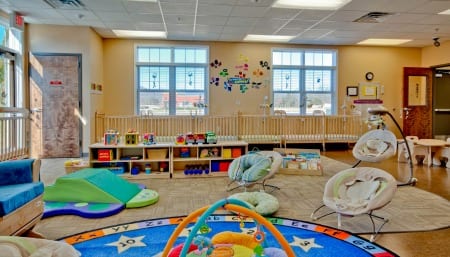
Describe a typical day for a child enrolled in your school.
The goal of our Infant and Toddler rooms is to provide a warm and nurturing environment where children can grow and develop. The classrooms are child-centered and designed to stimulate creative exploration and support discovery through meaningful, real-life experiences. Adult–child interactions are essential to early brain development.
Infants (6 weeks – 12 months)
• Our infant room is equipped with a private nursing room for parents that plan to nurse during the day.
• The infant room allows for each child to follow his/her individual schedule.
• Infant teachers plan weekly activities that help young children meet developmental milestones.
• Infants are ready to move up to the next classroom when they are walking and eating table foods.
• Daily reports will be sent home to parents containing information about daily activities, feedings, and diapering as well as any other relevant information.
Are cloth diapers an option if provided by parent? Yes
What kind of documentation is provided to parents at the end of the day regarding their infant?
Daily reports will be sent home to parents containing information about daily activities, feedings, and diapering as well as any other relevant information.
Toddlers (12 months – 18 months)
• Toddlers participate in large group activities and learning labs.
• Teachers plan daily lessons that are engaging and allow children to develop various skills in all domain areas.
• Daily reports will be sent home to parents containing information about daily activities, feedings, and diapering as well as any other relevant information.
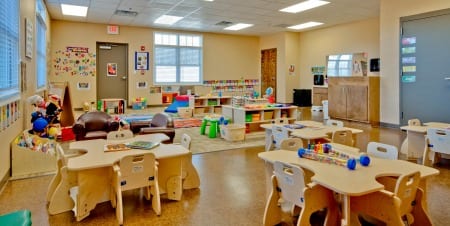
Early Preschool (18 months – 2 1/2 years of age)
The Early Preschool classroom is designed for older toddlers. In this program children will enjoy large group and small group lessons. Learning labs will also be used in this classroom. Teachers encourage the development of self-help skills by teaching children about cleanliness and safety as well as how to take care of their own personal hygiene needs. Potty training is an essential part of this classroom.
• Early Preschool activities include large group, small groups, and learning labs.
• Potty training begins in our Early Preschool classroom.
• Students take part in weekly music classes.
• Daily reports will be sent home to parents containing information about daily activities, feedings, diapering, and toileting.
• Communication is especially important as parents and teachers begin to work together on potty training.
Describe the general practices your school follows regarding the potty training process.
We begin working on potty training in our Early Preschool class and continue throughout Preschool. Students will always be placed in the classroom that is appropriate for their age and development. No child will ever be held back from advancing to the next classroom as result of not being fully potty trained yet.
Preschool 2 (2 1/2 – 3 1/2 years of age)
The Preschool 2 program offers each child a balance of individual, small and large group activities. The teacher incorporates a variety of activities including stories, songs, games, and other learning experiences to encourage social, emotional and cognitive growth. The children in this classroom use the plan-do-review process for choosing their learning labs.
• Children participate in large group, small group, and learning labs daily.
• Students also participate in weekly music and foreign language classes.
• Preschool 2 continue potty training if needed.
• Daily reports will be sent home to parents containing information about daily activities, eating, and diapering / toileting.
• Communication is especially important as parents and teachers continue to work on potty training.
Preschool 3 (3 1/2 – 4 1/2 years of age)
The Preschool 3 program offers each child a balance of individual, small and large group activities. The teacher incorporates a variety of activities including stories, songs, games, and other learning experiences, to encourage social, emotional and cognitive growth. The children in this classroom use the plan-do-review process for choosing their learning labs and participate in journaling activities to promote linguistic and writing skills.
• Daily lesson plans include activities that are academically engaging and individualized to each child.
• Preschool 3 participate in large group, small group, and learning labs daily.
• Students also participate in weekly music, foreign language, and art classes.
• Daily reports will be sent home to parents containing information about daily activities, eating, toileting, and skill development.
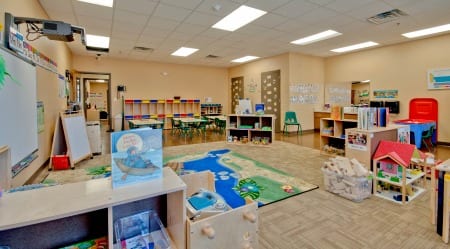
Pre-Kindergarten (4 1/2 – 5 1/2 years of age)
The Pre-kindergarten program offers each child a balance of individual, small, and large group activities designed to foster school readiness. The class comes together every morning for large group time and then divides into small groups for additional instruction. Children use the plan-do-review process to choose learning labs in this classroom. The teacher incorporates a variety of activities including stories, songs, games, and other learning experiences, to encourage social, emotional and cognitive growth. The primary purpose of the Pre-K classroom is to prepare students to be successful in any kindergarten classroom.
• The Pre-K teachers plan daily activities with a focus on Kindergarten readiness.
• Children in this class participate in large group, small group, learning labs, and journaling daily.
• Students also participate in weekly music, foreign language, art, and physical education classes.
• Daily reports will be sent home to parents containing information about daily activities, eating, toileting, and skill development.
What meals (if any) are provided by the school?
Hampton Cove Preschool will provide breakfast, an afternoon snack, and nutritious lunches daily. All lunches meet the USDA guidelines and standards for nutrition and serving size. Fresh fruits and vegetables will be served as often as possible. Any canned fruits or vegetables will be those canned in water without added salt or sugar. Milk will be served with breakfast and lunch, while water will be served with afternoon snack. As whole, fresh fruits and vegetables will be included at least twice each day, juice will not be served. Food from home may be substituted in the event that your child has dietary restrictions.
Describe how your school deals with allergies (e.g. Is yours a nut free school, class, other)
Hampton Cove Preschool does not serve/provide nuts in any breakfast, lunch, or snack items that we serve/prepare. Parents who are supplementing their child’s diet, or those parents that choose to provide their own meals, may include nuts for their children as long as there are no students with nut allergies in that child’s classroom.
What is your school’s predominant educational philosophy?
Hampton Cove Preschool utilizes the HighScope Curriculum. HighScope is one of the only research based curriculums available for early education and emphasizes adult child interaction, a carefully designed learning environment with a daily routine, and a plan- do-review process that strengthens initiative and self-reliance in children. Teachers and students are active partners and learning is seen as an interactive growth process. By using the main components of the HighScope model, it provides us with an open framework in which we are able to create a balanced curriculum. The daily routine allows for consistency and security for the children yet the freedom within to exert control over themselves, their environment and their activities.
– Enrichment Classes
Hampton Cove Preschool provides enrichment classes as part of our daily curriculum. Music, Art, Foreign Language (Spanish) and Physical Education are taught in various classrooms on a weekly basis to enhance the educational experience of children enrolled in our school.
Describe your admissions process.
The admissions process for Hampton Cove Preschool is as follows:
- Parents interested in enrolling their children in Hampton Cove Preschool are invited to schedule a tour of the school. This can be done in person, over the phone, or via e-mail.
- Following the tour, the parents will submit a completed application for enrollment as well as the application fee.
- After reviewing the application, Hampton Cove Preschool will contact the family to set up an admissions interview. Families will be notified of the school’s decision within two business days of the interview.
- After receiving your acceptance letter, you will need to call the school to confirm your enrollment and schedule your start date. On your start date, you will need to bring all required forms, registration fee, and first week’s tuition.
Storm Shelters
Knowing that the safety and well-being of your child is your primary concern, we have constructed the two bathrooms in each and every classroom of 8 inch-thick, steel reinforced concrete complete with 18 gauge metal doors to function as storm shelters in the event of a weather emergency. This allows students to shelter in place, in small groups with their regular classmates and teachers to minimize distress and eliminate the need to move through the building during a weather emergency.
Safety
– Biometric Fingerprint Scan Access
Access to our campus is controlled by a biometric fingerprint scanning system that restricts access to faculty and authorized parents only. Only those parents and family members that have been entered into our database will have access to the school campus. This ensures our students’ safety and eliminates concerns that may arise from a system that simply requires a “punched in code” that can easily be shared.
– Closed Circuit Camera System
All classrooms as well as our entryway is equipped with closed circuit cameras that send live feeds to our Principal and Vice-Principal’s offices as well as the Office Manager at the reception desk.
Rocket City Mom is a website about raising children in and around Huntsville, Alabama. Started in late 2010 by a local mom and newcomer to Huntsville, Rocket City Mom has grown into a thriving community of local parents and now boasts a staff of four, thirteen regular contributors, and tens of thousands of Tennessee Valley readers making it the #1 Parenting Resource in North Alabama.









